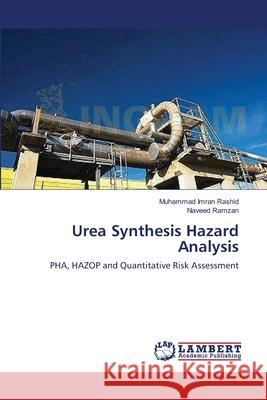Urea Synthesis Hazard Analysis » książka
Urea Synthesis Hazard Analysis
ISBN-13: 9783659180323 / Angielski / Miękka / 2012 / 100 str.
The Chemical plants, particularly those manufacturing urea are amongst the most complex plants in the chemical process industry. The severe operating conditions affect the safety of equipment, personnel involved and the environment. Different occurred accidents such as Port Neal Nitrogen Fertilizer (Dec 1994), Toulouse Fertilizer complex (Sept 2001) and Coffeyville Fertilizer Plant (Oct 2010) stresses to conduct hazard studies in fertilizer plants. Urea manufacturing process is described for understanding before conducting HAZOP studies. PHA is discussed including its basics, requirements, and procedures along with techniques (HAZOP, WHAT-IF, Check List, and FMEA). The objective of this book is the identification of major malfunctions in urea synthesis section, development of systematic procedure for risk potential assessment, to identify the weak points for process improvement, to rank the potential risk scenarios and to estimate the Quantitative Risk for the worst case scenario using ALOHA software. The book will be useful for students and professionals for understanding hazard analysis techniques and its real implementation in chemical process industries.
The Chemical plants, particularly those manufacturing urea are amongst the most complex plants in the chemical process industry. The severe operating conditions affect the safety of equipment, personnel involved and the environment. Different occurred accidents such as Port Neal Nitrogen Fertilizer (Dec 1994), Toulouse Fertilizer complex (Sept 2001) and Coffeyville Fertilizer Plant (Oct 2010) stresses to conduct hazard studies in fertilizer plants. Urea manufacturing process is described for understanding before conducting HAZOP studies. PHA is discussed including its basics, requirements, and procedures along with techniques (HAZOP, WHAT-IF, Check List, and FMEA). The objective of this book is the identification of major malfunctions in urea synthesis section, development of systematic procedure for risk potential assessment, to identify the weak points for process improvement, to rank the potential risk scenarios and to estimate the Quantitative Risk for the worst case scenario using ALOHA software. The book will be useful for students and professionals for understanding hazard analysis techniques and its real implementation in chemical process industries.











